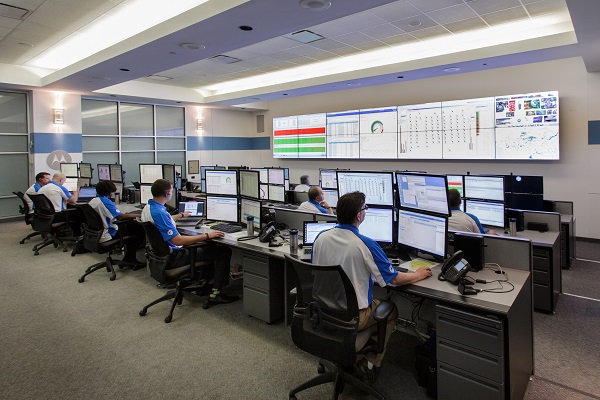Like regular physical exercise, exercising your cybersecurity muscles can be a good way to keep your information technology (IT) and cybersecurity staff in shape. The purpose of cybersecurity exercises is to prepare and test a person or group to respond to a specific set of circumstances.
Performing cybersecurity exercises can improve cybersecurity fitness, reduce stress and build muscle memory.
Types of Exercises
Cyber exercises generally come in two flavors: tabletop and functional. Tabletop exercises are discussion-based, and your team talks through potential cyber incident scenarios. Functional exercises are more operations-based and test your documented processes in action — how well they’re known and understood and how well the people, information, and technology work together.
However, sometimes, a hybrid exercise makes sense. This is where the leadership team works through a tabletop exercise while the staff works through a functional one. If set up right, the decisions by the managers feed into what the staff is doing, and vice versa.
Improving Your Cybersecurity Fitness
Improving overall cybersecurity fitness means getting better as time goes on. The IT world is very dynamic, and new vulnerabilities and exploits are being discovered at a rapid pace. Cyber exercises can test how your processes work with the newest exploits and business trends, like cloud infrastructure security. Ten years ago, for example, ransomware was not very prevalent, but now it’s a very real threat to businesses, public safety agencies and governments alike.
Practicing how to deal with the impact of malware from both an IT and business perspective is very important. Details about data breaches and how they were executed are now readily available. You can also learn about the tactics and motives of threat actors through organizations that share threat intelligence specific to your concerns, like the Public Safety Threat Alliance.
Using this type of information in an exercise scenario can help your organization stay current with threats and mitigations. Cyber exercises help improve and maintain fitness by keeping the information flowing and helping to update and improve processes.
Reducing Stress with Cybersecurity Exercises
Reducing stress in IT security comes from understanding threats and how you’re vulnerable. It also comes from how your IT users, hardware and software work together to deal with an incident. You can never know too much about your network and the processes that make it work. Cyber exercises can be used to discuss and or practice your cybersecurity processes and give you confidence in your plan.
If the exercise shows you some gaps, it’s not a problem. Now you can fix what you know, not what you’re guessing is wrong. Your IT staff (and, with it, your management) can reduce the stress caused by cybersecurity issues by performing well-thought-out cyber exercises. You can also get more peace of mind by working through the ‘what if’ and worst-case scenarios.
Another part of cyber exercises touches on budget considerations. After the exercise, you can make more informed investments in cybersecurity tools and services and point resources to proven areas of concern.
Using Cybersecurity Exercises to Build Muscle Memory
Muscle memory is practicing a movement until it becomes easier to perform, like second nature. During a cyber incident, you want a well-thought-out and practiced response, not a knee-jerk reaction. You can get this muscle memory by performing cyber exercises.
In addition to discussion-based exercises, functional exercises are another great way to discover gaps and build muscle memory. The difference is that functional exercises have the participants actually perform their duties in response to a made-up scenario.
A fire drill is a functional exercise of the fire evacuation plan. The drill has people leave their seats, evacuate a building and meet at a designated location. A cyber functional exercise also has the players perform actual cybersecurity responses based on your security plan. Practicing uncommon or high-criticality cyber situations makes your cybersecurity team and your agency or business stronger.
Summary
Cybersecurity exercises are important when it comes to keeping your company’s IT and security staff in shape. Because the current cyber landscape is so dynamic, with new threats emerging constantly, building the “muscle memory” of your cyber incident response team is more important than ever. Whether you wish to conduct a tabletop exercise to discuss potential plans of action or a functional exercise to test those plans of action, it can help reduce the stress when cyber threats hit.
By implementing cyber exercises, you can understand the current threats and discover where your organization is vulnerable to attacks. Learn more about cyber exercises by contacting your colleagues who have performed them. These exercises can be short (one-two hours) or longer (multi-day), depending on what your organization needs. With regular practice, your organization can be better prepared.
Motorola Solutions offers a wide range of Advisory Services, including Cyber Exercises, to help organizations prepare for and prevent cyber attacks. Contact us for more information.





Ali Allage
December 18, 2023
Cyber exercises are the workouts for your digital defenses, keeping them agile and robust in the face of evolving threats. This insightful piece emphasizes the importance of regular ‘cyber workouts’ to stay ahead in the cybersecurity game. Just like physical fitness, maintaining a proactive cybersecurity posture through exercises is key to resilience in the dynamic and ever-changing landscape of cyber threats.
For More details, please visit: https://bluesteelcyber.com
ravi.gupta.cyble@gmail.com
February 19, 2024
Great! thanks for sharing Cybersecurity news information keep up good work